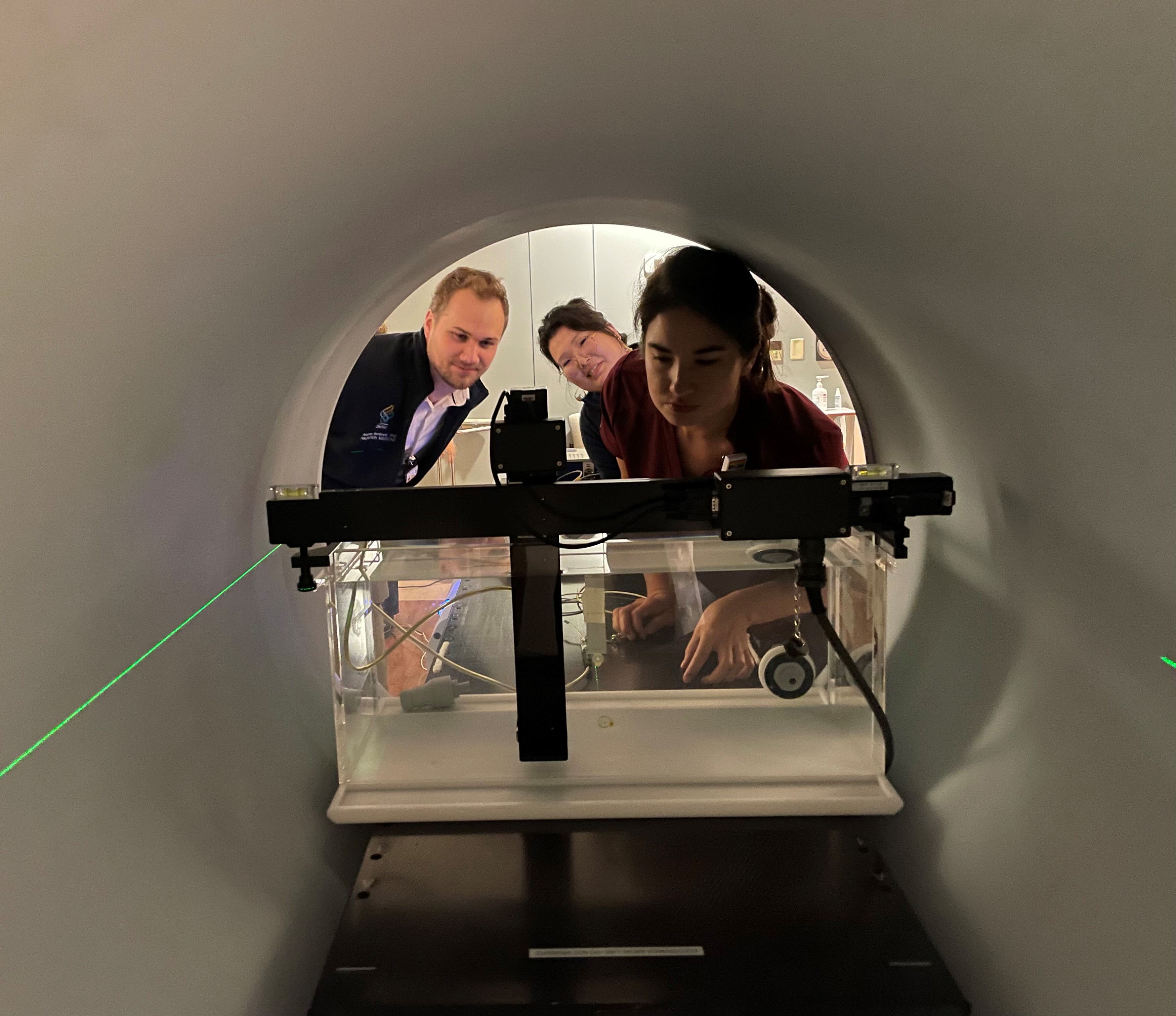Therapeutic Medical Physics Residency Program
Welcome to the OHSU Medical Physics Residency Program! We are pleased to introduce you to our Program Director, Ms. Monica Kishore, who will provide you with valuable insights into our residency and what makes our program unique.

The Therapeutic Medical Physics Residency Program provides comprehensive training and practical experience for individuals pursuing a career in medical physics. The goal of the program is to prepare residents to contribute to the safe and effective use of radiation therapy in cancer treatment, achieve clinical competence for independent practice, and successfully complete the American Board of Radiology (ABR) certification process.
Throughout the two-year program, residents are supervised and mentored by board-certified medical physicists who provide structured education and hands-on clinical experience across medical physics, radiation oncology, and related specialties.
The program is guided by three core principles of training:
Knowledge, Skills, and Clinical Competence
Developing a strong foundation in the science and practice of medical physics to ensure safe, effective patient care
Professionalism, Ethics, and Independent Practice
Fostering integrity, accountability, and readiness for independent clinical work
Leadership, Collaboration, and Lifelong Learning
Encouraging teamwork, communication, and a commitment to continual growth and improvement
These principles support the program’s goal of developing skilled, ethical, and thoughtful clinical medical physicists.
This program holds accreditation from the Commission on Accreditation of Medical Physics Educational Programs (CAMPEP).
Program Leadership
Program Director
Monica Kishore, M.S.
Associate Program Directors
Stephanie Junell, Ph.D.
Vice Chair, Director of Physics and Chief Medical Physicist
John Bayouth, Ph.D.